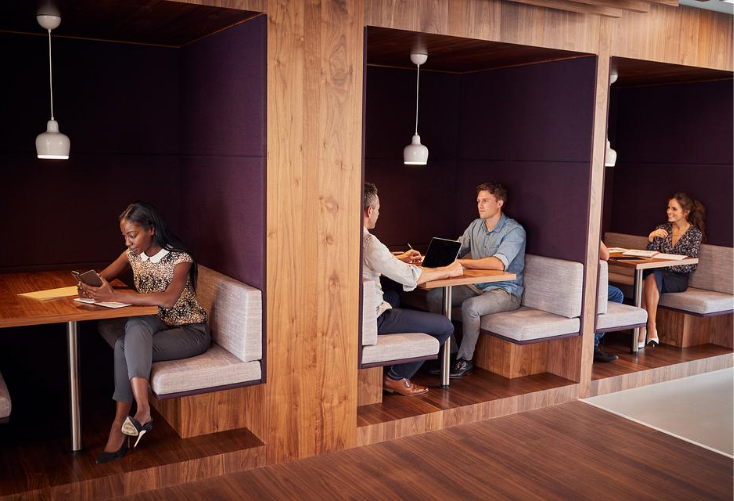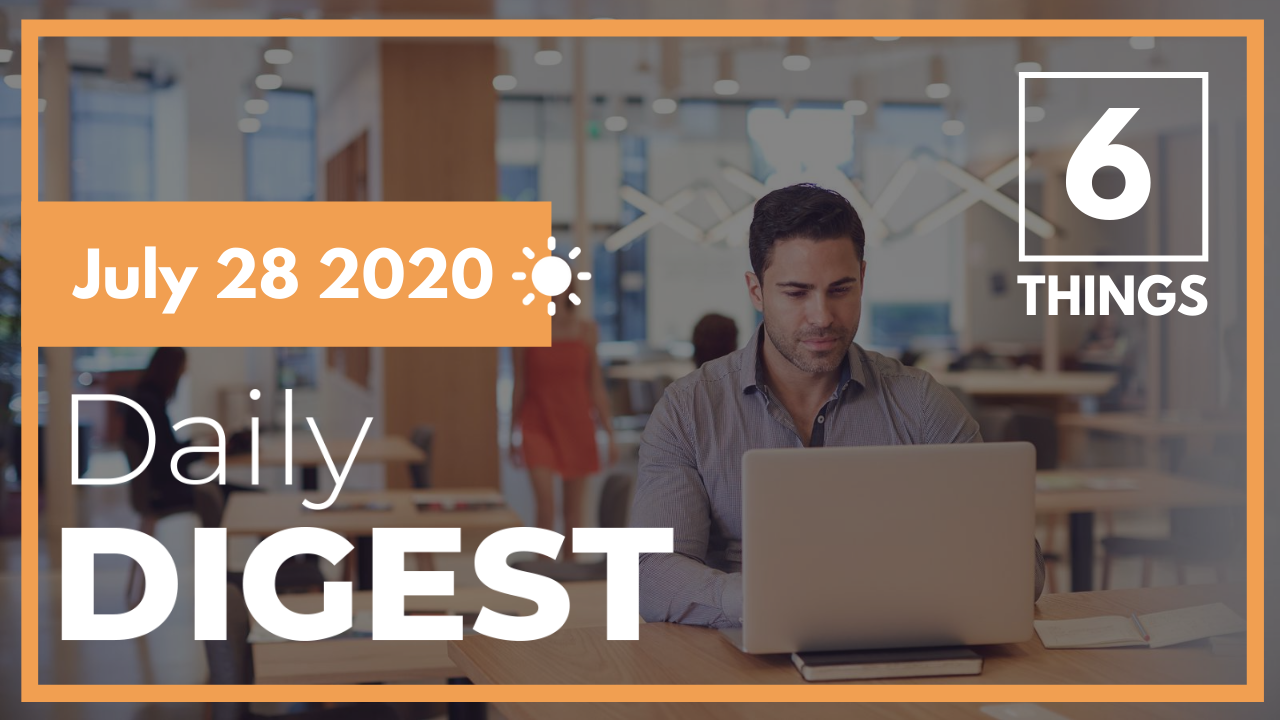Hand selected flexible workspace news from the most reliable sources to keep you ahead of the pack. We find all the latest news, so you don’t have to. Morning and afternoon updates. Stay in the know.
Here’s what you need to know today:
- Flexible Offices Could Be A Key Solution NEW
- Flexible Workspace Firm Stays Optimistic About Future NEW
- Countries Still Welcoming American Digital Nomads NEW
- WeWork Enlists Help From Real Estate Brokerage Firms
- The True Test Of Company Preparedness Starts Now
- The Transformation Of Workplace Design
Flexible Offices Could Be A Key Solution
Companies have begun navigating how they want to welcome employees back into the office, and with that will need to be an understanding of the importance of workplace flexibility.
A survey from Office Space in Town found that only 5% of workers want to work remotely full-time as this arrangement has been tied to poor mental health, burnout and loneliness.
“Despite many hailing the pandemic as the death of the office, I believe we’re seeing its evolution from a rigid concept to one of fluidity,” said Olly Olsen, co-founder and co-chief executive of The Office Group. “More than 40% of our inquiries during lockdown have come from companies that are currently in traditional offices, which just aren’t set up to offer the space density or layout required to meet safety measures and create a comfortable work setting in this new era.”
This is an ongoing trend with several flexible office firms, such as Fora’s CEO Enrico Sanna, who explained that opening a headquarters at 10% capacity is unreasonable from an economic standpoint. Instead, companies will be looking into adopting satellite offices that not only cut costs, but also alleviate potential spread of the virus.
Flexible offices will provide companies with the chance to become more agile as many attempt to recover from financial and business losses they have suffered over the past few months. Adopting these types of workspaces makes adapting to a healthy, distanced work environment much easier, and allows companies to focus on their growth strategy moving forward.

Flexible Workspace Firm Stays Optimistic About Future
Many flexible workspace operators are struggling right now. With companies avoiding renewing their leases, several firms are facing high vacancies, which has led to layoffs and a decrease in revenue.
However, a recent JLL report predicted that flexible office firms in certain markets may triple their presence by 2030. Bryan Murphy, CEO of Breather, says that the transformation is already underway.
“We’ve seen business and sales activity more than double in the last 30 days,” said Murphy. “Most of our new customers are coming from leases that they’ve let expire. They’re saying, ‘We know that we don’t want to sign a new lease right now, we know that we need a little less space — 20% is a very typical number — and these are turnkey spaces that we can move right into.”
Murphy added that he is confident that more companies will opt for short-term, flexible office leases moving forward. The risk of a long lease and the high costs it takes to maintain them is no longer feasible for many, and flexible workspaces offer the perfect solution to this.
Companies who use flexible offices have the ability to use them at their own leisure and book meeting spaces on-demand. For instance, Breather in particular offers a mobile app that allows users to rent spaces for as little as one hour without a membership commitment.
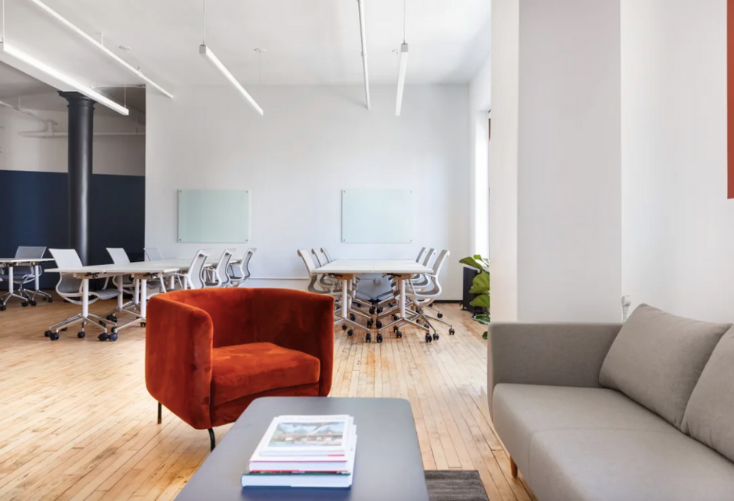
Countries Still Welcoming American Digital Nomads
For many Americans, who are in the midst of a huge uptick in COVID-19 cases, being a digital nomad feels next to impossible at the moment.
Although it is being recommended that Americans avoid all international travel, there are still some countries that are welcoming in working travelers.
Estonia’s digital nomad visa allows overseas workers to stay in the country for up to one year. Applicants should have a monthly salary of around $3,530 from their remote position to be considered for the visa. At the moment, Estonia is only allowing Americans in for either work or study and upon arrival must self-isolate for 14 days.
Barbados recently launched its “Barbados Welcome Stamp” program to grant remote workers a visa to come into the country for up to one year. The application fee is $2,000 for individuals and $3,000 for families.
Georgia also recently announced a new program for foreign workers. Applicants are required to provide proof of employment and give consent to quarantine for 14 days to be considered for the program. However, American travelers are not allowed in the country unless they are given a visa of at least six months, traveling for business or are the spouse of a Georgian citizen.
In Jamaica, Americans must have an approved Travel Authorization before their trip. However, those from Florida, Arizona, Texas and New York are deemed as high-risk states by the country’s government and are required to provide proof of a negative COVID-19 test to receive authorization.
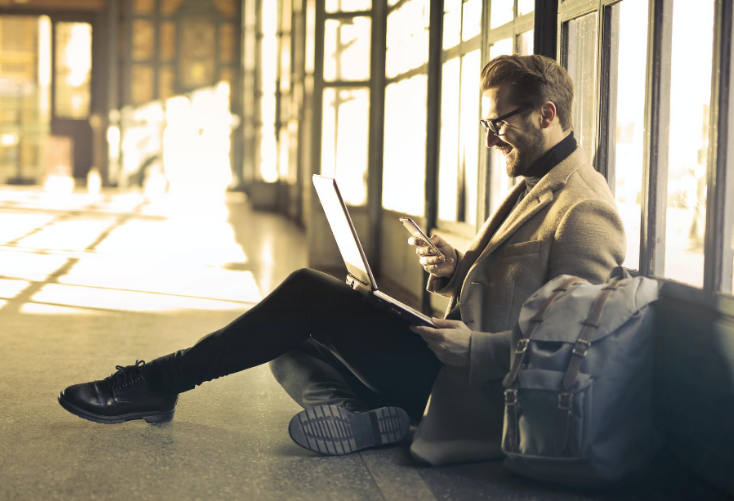
WeWork Enlists Help From Real Estate Brokerage Firms
WeWork has enlisted the help of major commercial real estate brokerage companies CBRE and JLL to help fill in its huge vacancies.
This move highlights the challenges that many flexible workspace companies are facing as people opt to work from home for the time being.
For its largest market in New York City, WeWork will have the help from JLL to market and lease large vacancies including its workspaces on 620 Avenue of the Americas and 437 Madison Avenue. Currently, the company is advertising almost 2 million square feet of vacancy for its New York portfolio, out of the 9 million square feet it occupies in the city.
Meanwhile, CBRE will aid in leasing spaces part of the company’s Los Angeles market. Reports have also indicated that WeWork is searching for other brokerage firms to help with four other locations in New York that have not been specified, as well as its markets in Boston, Miami and Seattle.
Hiring real estate services companies to handle marketing and negotiations is not out of the ordinary, but WeWork has long taken pride in doing this on their own to boost its brand.
“There’s no question the supply is increasing and there’s no question that demand is slowing down, but in places like New York City, there’s always tenants in the market,” said Peter Riguardi, the Tri-state area president and chairman of JLL.
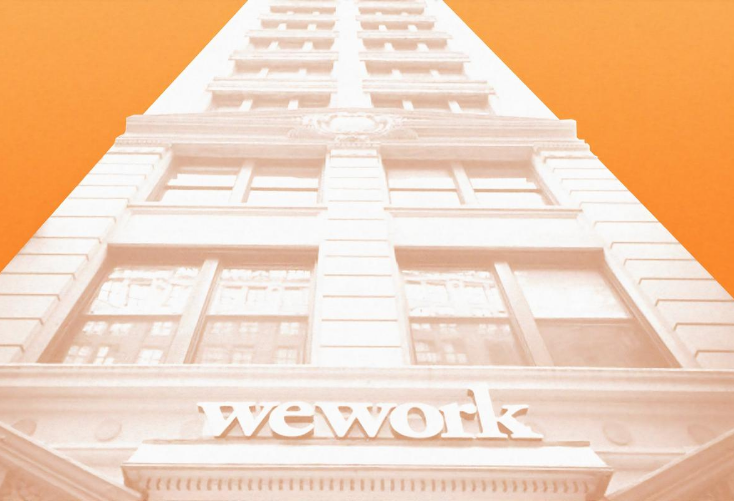
The True Test Of Company Preparedness Starts Now
Just as the world seemed to be returning to normal, a spike in COVID-19 cases has caused global economic growth to slow down once again.
Many companies have been impacted by two major factors throughout the pandemic: significant changes in consumer behavior and the disruption of the workplace.
The workplace in particular has long been approaching a new, digitally-fueled environment that values flexibility. However, companies have undergone years of transformation in just a few months. Now, video conferencing, collaboration, online learning and telehealth have quickly become integral parts of our lives.
The future of work concept has predicted these changes for years now, but the pandemic has accelerated them into reality. Resources and tools like AI and automation that may have seemed far-fetched just six months ago are now being readily adopted to maintain the same level of efficiency and productivity as company’s adjust their daily operations to keep employees safe.
Additionally, the past few months have been the ultimate test for a company’s preparedness during times of crises. While many have successfully transitioned to a remote workforce, research has found that the true test of a company’s readiness is their worker’s abilities to work alongside technology.
Overall, although the future of work is here and now, it will take continued willingness to adapt to new technology to operate a company strategically in the midst of this uncertainty.

The Transformation Of Workplace Design
Interior designers and architects are predicting major changes to commercial design as company’s shift their strategies to be more mindful of health, outdoor spaces and touchless technology.
“The whole world is going through this thing and we’re all trying to figure it out together,” said Christina Davis, principal over the interior design department at RVK Architects. “There will definitely be changes that last.”
Moving forward, the growing popularity of shared workspaces and amenities will likely come to a halt in favor of automatic technology, which will become a necessity for the safety and health of workers.
Mary Bartlett, partner at Marmon Mok Architecture, also added that the company has seen a spike in businesses investing into automated kiosks that can perform temperature checks of people walking into a building.
The shift in workplace design will also include desks that are spread out, cubicle dividers and plexiglass to protect reception areas. Even more, companies will likely look at staggering work scheduling in order to reduce the density of the office.
Bartlett also said that spacing out workstations is simple in secondary cities since commercial real estate proxies per square foot are more affordable. However, the pandemic has still impacted real estate growth as companies embrace remote working arrangements.
“If you can work effectively remotely and you feel safe and we feel safe, I think that will be a more permanent trend,” said Bartlett.
